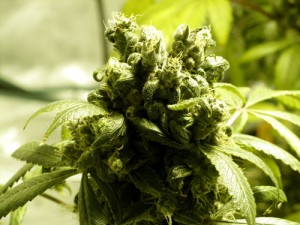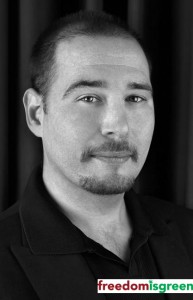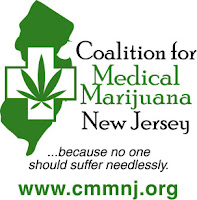 1/11/2012 – A spokesperson at the New Jersey Department of Health and Senior Services (DHSS), Donna Leusner, said that there are one hundred and nine physicians registered with the state’s medicinal marijuana program. This is an increase of just nineteen since the last check on the list in June 2011.
1/11/2012 – A spokesperson at the New Jersey Department of Health and Senior Services (DHSS), Donna Leusner, said that there are one hundred and nine physicians registered with the state’s medicinal marijuana program. This is an increase of just nineteen since the last check on the list in June 2011.
The Garden State is requiring the nation’s first registry for doctors who wish to recommend cannabis therapy. The separate registry for seriously ill patients is not open yet. Qualifying NJ patients do not have any protection from arrest or prosecution if they are caught with marijuana.
The finalized regulations for the “Medicinal Marijuana Program” were released by NJDHSS in December 2011. The doctor registry was not written into the law, but it is part of these new regulations. Patients, scientists, doctors, nurses and medical professionals testified several times before Legislative and DHSS hearings that the registry was unnecessary and contained requirements that would discourage participation.
Ken Wolski, a registered nurse and Executive Director of The Coalition for Medical Marijuana New Jersey (CMMNJ) wrote about the chilling effect of the registry.
” The physician registration program is even more limiting. A new requirement says that physicians must certify that they have completed medical education in Addiction Medicine and Pain Management within the past two years. Physicians must include the course title that covers these two areas, or they will be rejected from the registry.
This is a curious add-on. Marijuana is approximately as addictive as caffeine. Physicians should not be required to take a course in addiction medicine for recommending a substance with documented low addiction potential.” read full
The former DHSS Commissioner Dr. Poonam Alaigh testified before the NJ Senate Health Committee in March 2011 that no similar requirements existed for doctors dispensing other drugs, even narcotics like morphine.
There are more than 28,000 physicians in New Jersey. The low number of registered doctors participating in the cannabis registry so far is seen as a problem by advocates and patients. The NJ Board of Medical Examiners, The NJ Department of Consumer Affairs and DHSS are tasked with providing information to doctors about the cannabis program.
The physician registry for medical cannabis began in October 2010. The list of the registered doctors is currently not public, leaving many patients wondering how they will access the program when or if it becomes operational. DHSS spokesperson Donna Leusner said that the possibility of publishing the doctor list is “under review.”
Two years after the Compassionate Use Medical Marijuana Act was signed into law, the controversial physician registry is the only part of the NJ program that appears to be online.
None of the six Alternative Treatment Centers (ATCs) that will grow and dispense the cannabis have received their final permits from the state. Several have recently failed in their bids for municipal land-use variances. This means that there is no legal marijuana available in New Jersey.
The severely restrictive regulations have put qualifying residents in a Catch-22: Until one of the ATCs actually opens their doors the specially qualified doctors will not be able to register patients with the state.
Chris Goldstein is a respected marijuana reform advocate. As a writer and radio broadcaster he has been covering cannabis news for over a decade. Questions? [email protected]
 Officials may announce the winning applications for the medical marijuana Alternative Treatment Centers (ATCs) in the Garden State today. The New Jersey Department of Health and Senior Services (DHSS) confirmed in an email that they would release a statement.
Officials may announce the winning applications for the medical marijuana Alternative Treatment Centers (ATCs) in the Garden State today. The New Jersey Department of Health and Senior Services (DHSS) confirmed in an email that they would release a statement.






 Jahan Marcu is currently investigating the pharmacology of cannabinoid receptors. He was working at the California Pacific Medical Center Research Institute when exciting discoveries were made showing enhanced anti-cancer effects with THC and CBD from the Cannabis plant. The findings were published in the Journal of Molecular Cancer Therapeutics. In 2009 he received the Billy Martin Award from the International Cannabinoid Research Society (ICRS). Jahan is currently the vice-chair the Medical and Scientific Advisory Board at Americans for Safe Access (ASA). Questions? Contact
Jahan Marcu is currently investigating the pharmacology of cannabinoid receptors. He was working at the California Pacific Medical Center Research Institute when exciting discoveries were made showing enhanced anti-cancer effects with THC and CBD from the Cannabis plant. The findings were published in the Journal of Molecular Cancer Therapeutics. In 2009 he received the Billy Martin Award from the International Cannabinoid Research Society (ICRS). Jahan is currently the vice-chair the Medical and Scientific Advisory Board at Americans for Safe Access (ASA). Questions? Contact